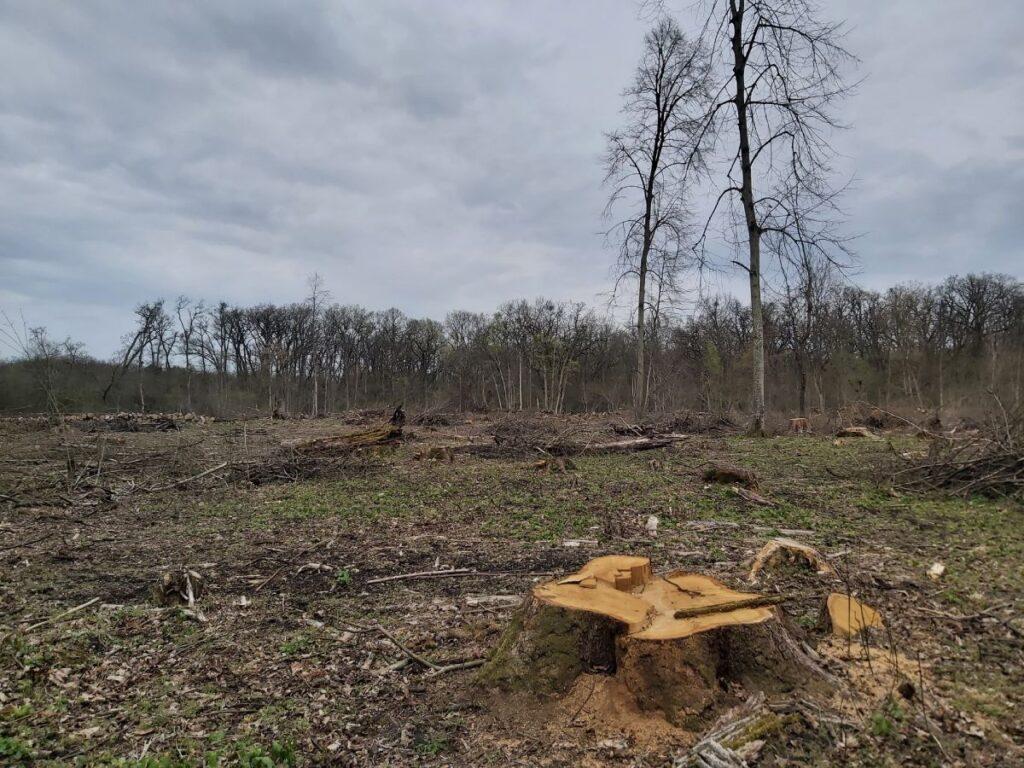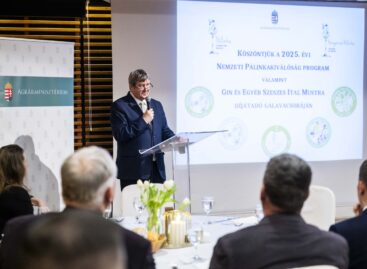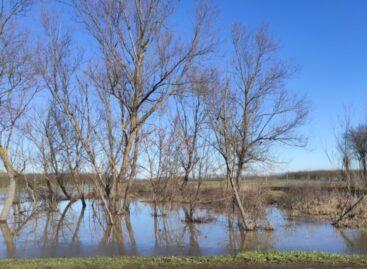Clear-cutting is harmful, and state forestry could manage our forests more responsibly – this is the message of WWF Hungary’s Climate-Friendly Forester Award
The Ministry of Agriculture’s statement and its video for social media defends clear-felling, citing the WWF Hungary Climate-Friendly Forestry Award, and rejects the criticisms that have been leveled at domestic forestry in recent months. According to WWF Hungary, the criticisms in question unfortunately have serious professional grounds. Clear-felling – especially in protected and Natura 2000 areas – can significantly damage habitats, and therefore its application is not acceptable everywhere. At the same time, we welcome and even support forest management efforts that preserve natural values and the climate, as well as sustainable good practices applied in individual areas.
 The Ministry of Agriculture published a video featuring Péter Zambo, State Secretary for Forests and Land Affairs, which was filmed in the Sóstó Forest, a cutting area under renovation. According to the State Secretary, “aging” forests need to be cut down, and clear-felling is one of the accepted ways to do this. The Climate-Friendly Forestry Award, announced by WWF Hungary in the CLIMAFORCEELIFE project, was also awarded to Nyíreryházi Erdeszet, a unit of Nyírerdő Zrt., for its good management practices in the Sóstói Forest area featured in the video. Based on this, the State Secretary concluded that our organization awarded the award to Nyírerdő Zrt. for its entire activity – including the clear-felling of old forests with high naturalness. The statement about the video also underlines that in the meantime, we had unfoundedly criticized the clear-felling that Nyírerdő Zrt. carried out in the three-hectare area of the Fényi Forest.
The Ministry of Agriculture published a video featuring Péter Zambo, State Secretary for Forests and Land Affairs, which was filmed in the Sóstó Forest, a cutting area under renovation. According to the State Secretary, “aging” forests need to be cut down, and clear-felling is one of the accepted ways to do this. The Climate-Friendly Forestry Award, announced by WWF Hungary in the CLIMAFORCEELIFE project, was also awarded to Nyíreryházi Erdeszet, a unit of Nyírerdő Zrt., for its good management practices in the Sóstói Forest area featured in the video. Based on this, the State Secretary concluded that our organization awarded the award to Nyírerdő Zrt. for its entire activity – including the clear-felling of old forests with high naturalness. The statement about the video also underlines that in the meantime, we had unfoundedly criticized the clear-felling that Nyírerdő Zrt. carried out in the three-hectare area of the Fényi Forest.
“We reject the Secretary of State’s misinterpretation that the Nyírerdő Zrt. Climate-Friendly Forester Award is a confirmation that everything that state-owned forest enterprises do is right. This is a harmful simplification that covers up the very good examples of forestry that are progressive and require political attention and support with unsustainable practices. The apparent contradiction regarding clear-cutting can be easily resolved if we accept that this logging method can help achieve a more favorable state in one place, but destroys our most precious natural assets in another,” said László Gálhidy, head of WWF Hungary’s Forest Program. “The Fényi Forest is one of the most valuable, well-maintained, old-growth lowland forests in the country. It is a habitat that should not have been affected by clear-cutting in any part. In contrast, the Sóstó Forest is partially surrounded by populated areas and, in many respects, degraded forest block, where clear-cutting may play a temporary role between interventions – especially in cases where non-native, low-nature-value plantations are converted into native forests. When awarding the prize, the jury consisting of representatives of several institutions primarily considered other aspects; for example, the adoption of native tree species, the preservation of dead wood or the search for water replenishment opportunities. WWF Hungary also formulated its own proposal that forestry should place greater emphasis on protection and public welfare purposes, as well as on more complex and forward-looking methods of urban forest management”
– added the program manager.
Related news
A change of perspective in forest management
🎧 Hallgasd a cikket: Lejátszás Szünet Folytatás Leállítás Nyelv: Auto…
Read more >The National Pálinka Excellence Program 2025 awards were presented
🎧 Hallgasd a cikket: Lejátszás Szünet Folytatás Leállítás Nyelv: Auto…
Read more >Water retention and ecological water replenishment: from now on, every idea will go into your pocket
🎧 Hallgasd a cikket: Lejátszás Szünet Folytatás Leállítás Nyelv: Auto…
Read more >Related news
Ham seasons: the bad, the better and the good (?)
🎧 Hallgasd a cikket: Lejátszás Szünet Folytatás Leállítás Nyelv: Auto…
Read more >









